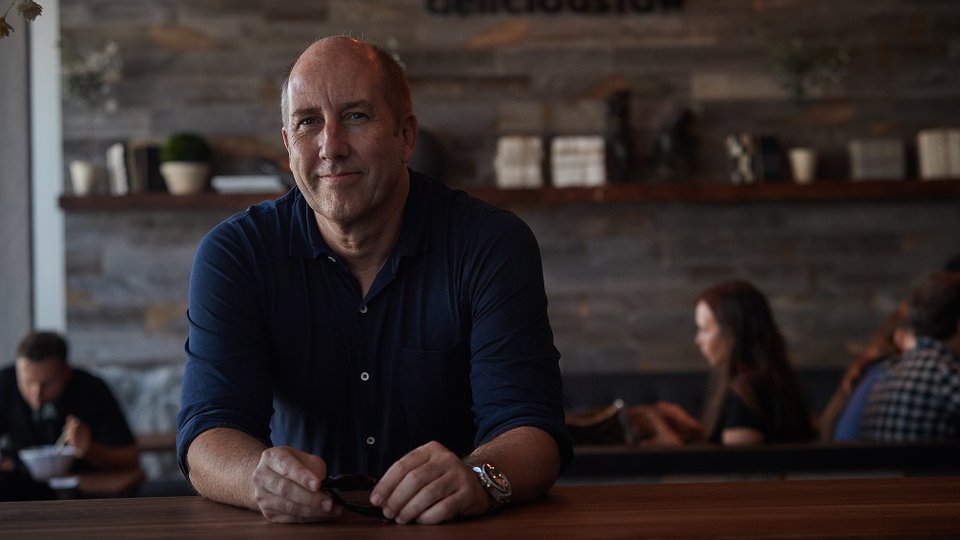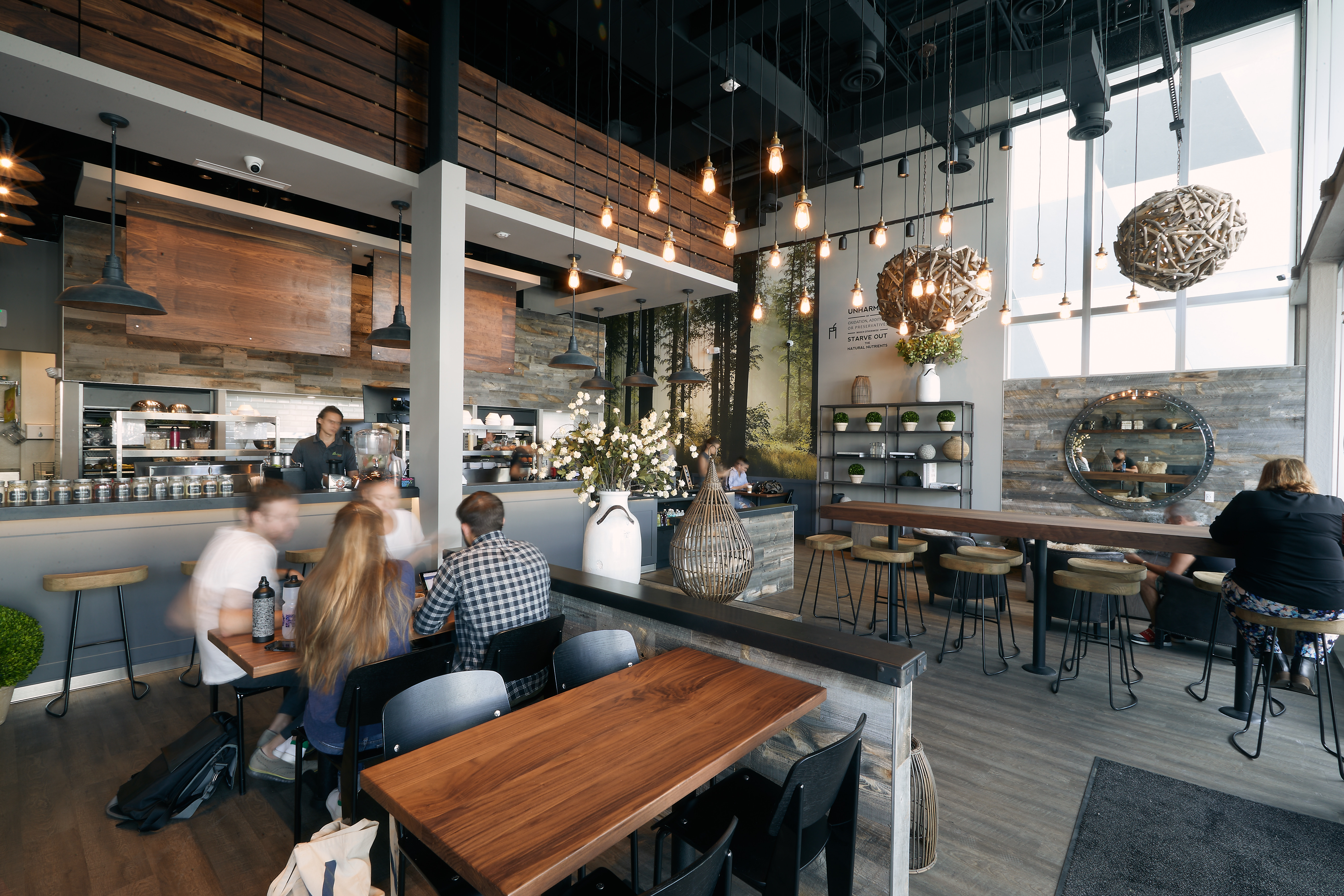Operations
Miami CEO proves plastic reduction is possible amid COVID-19
Flemming Madsen, co-owner and founder of Miami's Delicious Raw, isn't going to let the coronavirus take his business or his passion for preserving the planet.

August 20, 2020 by Cherryh Cansler — Editor, FastCasual.com
While COVID-19 has triggered a decrease in restaurant traffic, it's also responsible for the industry's increase in plastic use as brands are relying on disposable packaging to meet carry-out and delivery needs — a double whammy.
Cities and restaurants that had been making strides in cutting plastic before the outbreak have been forced to change course. Cities, for example, are allowing restaurants to use more plastic as a way to more easily serve offsite customers, and in an effort to contain the spread of the coronavirus, restaurants that had been discounting orders for customers reusing bowls and cups — Starbucks, Dunkin' and Just Salad, for example — have suspended their programs.
All of this is a blow to the fight against plastic pollution, which the World Wildlife Fund said will increase 40% over the next decade, but Flemming Madsen, co-owner and founder of Miami's Delicious Raw, a juice bar offering made-to-order fruit, smoothies and vegetable juices, isn't going to let up on his mission of preserving the planet.
"We are a very health-conscious company, and I think adopting sustainable practices goes hand-in-hand with that," said the founding member of Plastic Free Miami Beach, a group of more than 100 business owners committed to reducing plastics from their establishment. "For a company like us, that's dependent on sourcing quality food; being mindful about the environment is a no brainer. We make a great conscious effort to protect the ecosystem around us so that we can have a real positive impact."
Founded more than two years ago, the organization has a three-level system in which participating businesses can choose the most suitable level for their plastic reduction practices.
"The more single-use plastic items businesses move away from, the higher the level they can obtain," Madsen said during an interview with FastCasual. "At Delicious Raw, we meet the criteria for the highest level which means we have removed all single-use plastic products from the list of eligible materials and/or switched over to 100% reusable."
The eight-unit chain's other ocean-friendly practices include:
- All cups, bowls, lids and straws are biodegradable.
- Encourage guest use of reusable mason jars for coffee, tea, juices, smoothies, etc..
- All to-go packaging is made from renewable plant resources and is compostable — absolutely no Styrofoam.
- Proper recycling practices are followed according to city guidelines.
- Only reusable foodware is used for onsite dining.
- No plastic bags offered with take-out or to-go orders — only recycled paper to-go bags — and utensils are provided only upon request. The to-go utensils are made from renewable plant resources and are compostable.
Although Madsen, who founded Delicious Raw in 2013 after moving to the U.S. from Denmark, can't be sure how much his commitment has reduced the use of plastic in the city, he called it significant.
"We have switched over to 100% reusable items for dine-in, with the exception of our juice cups, which are made from compostable plant fibers. Our take-out packaging is likewise plastic-free," he said. "This is especially important now that we are doing so much take-out business due to COVID-19."
Doing the right thing
Plastic Free Miami Beach goes hand-in-hand with Delicious Raw's desire to prove that customers don't have to sacrifice taste to make a conscious choice, according to Madsen.
"It doesn't take great sacrifice to be more sustainable," he said. "There are very easy, common sense measures that serve a greater purpose. For us, it was a very hands-on yet manageable transition, and we are happy to have embraced sustainability and being 'green' as part of our brand concept."
Although Madsen admitted that some earth-friendly materials might be a little more expensive, his commitment hasn't affected his budget and he hasn't increased prices to accommodate.
"We don't feel that it has had a material impact on our bottom line," he said. "We feel this can be offset by being more mindful of how and when we use them. For us, it's a commitment that we are proud to stand behind. We do receive a positive response from our customers regarding our sustainability efforts, and we appreciate that it is being recognized."
Is sustainability during COVID-19 sustainable?
Like restaurants all over the world, the virus forced Delicious Raw to temporarily halt business.
"We did have to close our doors during mandatory lockdowns and have since reopened our Miami Beach and Davie location in South Florida with new safety measures.
"We built a huge appetite for opening up again during the lockdown, and we feel that we can function fairly similar to what we were doing before the virus, but with bigger safety precautions," he said. "We have added online ordering capabilities to order, pay, and pick up. It is an extremely safe way to order with minimal to no human transaction."
The floors at all Delicious Raw locations have the customer flow clearly mapped with a path for walking in and out, as well as points of reference to advise on social distancing. The chain also installed plexi-countertop shield barriers at counter areas where there is customer interaction, as well as hand sanitizing stations at both the register and strategically placed throughout the stores. All team members wear masks and gloves to protect themselves and customers, and tables are cleaned and sanitized after each guest dines.
Even with all the changes, Madsen is confident about the future of his business. Plans are still underway, for example, for a new location in Wynwood, Miami's arts district.
"While we've had to adjust our timeline, those plans are still in the pipeline, and we are excited to continue expanding our reach, he said.
Sandra Noonan, chief sustainability officer at New York City-based Just Salad, said there were inexpensive ways for restaurants to minimize single-use disposables, particularly plastic, amid COVID-19. One example was implementing a utensil opt-in feature on the online ordering platform.
"Early this year, we rolled this out on orderjustsalad.com, and we are now expanding it to our third-party delivery partners, including Ritual, DoorDash, Delivery.com, sharebites.com and more," Noonan said during an interview with FastCasual. "Our other plastic-reduction initiatives include phasing out plastic smoothie cups and replacing them with paper, testing non-plastic fiber dressing cups at select locations, and continuing to offer recyclable paper delivery service and takeout bags.
Just Salad is also considering plastic offsets and zero-waste pickup and delivery and recently launched a Sustainability Champion program featuring teammates who serve as in-store experts and advocates for sustainability initiatives.
"And finally, reducing plastic waste is one of many important avenues for reducing waste and combating climate change," Noonan said. "Our forthcoming carbon labeling initiative is another way in which we are empowering our guests to make climate-smart choices."












